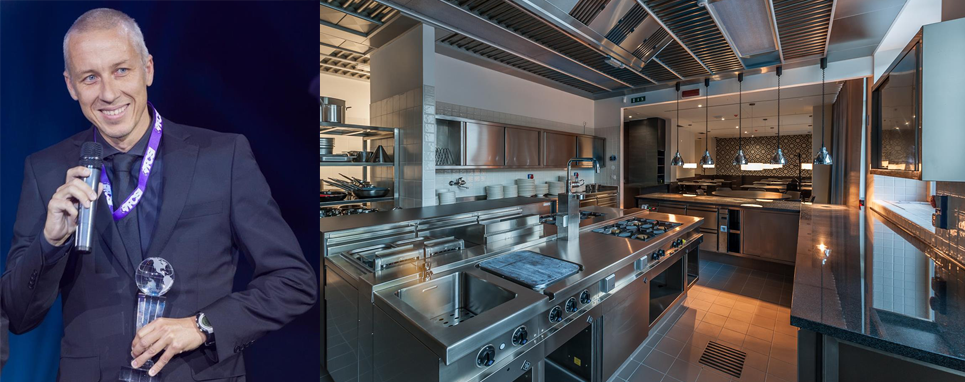
An Interview with FCSI consultant Mr Cernigoj
In our latest blog, we interview FCSI consultant Mr Cernigoj about his role as a foodservice consultant, the importance of drainage and flooring, and his experience of working with ACO.
1. Please tell us a little about your role as a foodservice consultant and the projects you are currently working on?
As a foodservice consultant I’m involved in a vast variety of projects ranging in size from small fast food outlets which are built for just a couple of tourist seasons up to major hospitals and hotels where the demands of the user and clients are much higher.
At the moment, I’m involved with four key projects: a 400 sq metre kitchen in Hotel JAMA which is located in the Postojnska cave, most visited tourist area in Slovenia; the Ikea centre in Ljubljana; the restaurant and show kitchen for Golfbled, the oldest and biggest golf course in Slovenia, and the Interspar kitchen and preparation areas in Interspar shopping centre.
2. Why are you so keen to learn more about drainage and flooring in a foodservice environment?
Foodservice consultants should combine knowledge and expertise from different fields of engineering and technology. Nowadays the modern kitchen combines not only the chef’s knowledge and classic cooking experience but also a range of new technologies. Although drainage and floor gullies can seem “old fashioned” items, in reality modern, hygienically designed gullies and drainage help our clients to reduce the costs of cleaning and improve levels of hygiene.
3. What impresses you about ACO and their commitment to putting Hygiene First?
In today’s commercial kitchen market, as in many consumer markets, there is a tendency to make and develop new products very quickly with marketing campaigns encouraging consumers to change appliances after only a few years of use. However, there are still many elements of a professional kitchen which cannot or should not be changed after such a relatively short period of time including the wall tiles, floor gullies, drainage and ventilation systems. ACO recognises this and the company’s success is based on its ability to develop perfectly made products and make them readily available at a realistic price. ACO is also very good at refining the small design details which make all the difference to a product’s hygienic performance. For example, some small product design details, which are almost invisible to a client, make cleaning easier and this improves hygiene levels in food processing production areas which in turn enables kitchen operators to produce better quality products.
4. What impresses you about ACO’s approach to hygienic drainage design?
ACO’s dedication to getting the design details of their products absolutely right and their knowledge about every part of the commercial kitchen design process. Listening to the planners, contractors and end client is the first task which a manufacturer like ACO has to perfect in order to deliver the right drainage system. In one small gully design alone, we can see that ACO has in-depth knowledge about every part of foodservice delivery from cleaning to local regulation and fire protection to the needs of construction workers who have to build a gully for the first time.
5. How will you be working with ACO going forward?
As a planner, I’m trying to identify the little details that differentiate a good product from an excellent product and to present this information to my clients. Why is this so important? In my experience, especially in a case public tenders, the main contractors are only interested in finding the lowest price without taking proper consideration for the quality of products which will be provided.
As planer I’m visiting a lot of kitchens and producers, and then comparing materials and products. My goal is to give my client a better view and realist comparison of what is the most suitable product for their kitchen. In a field of floor gullies, I believe that ACO is doing an excellent job and delivering market-leading products.
